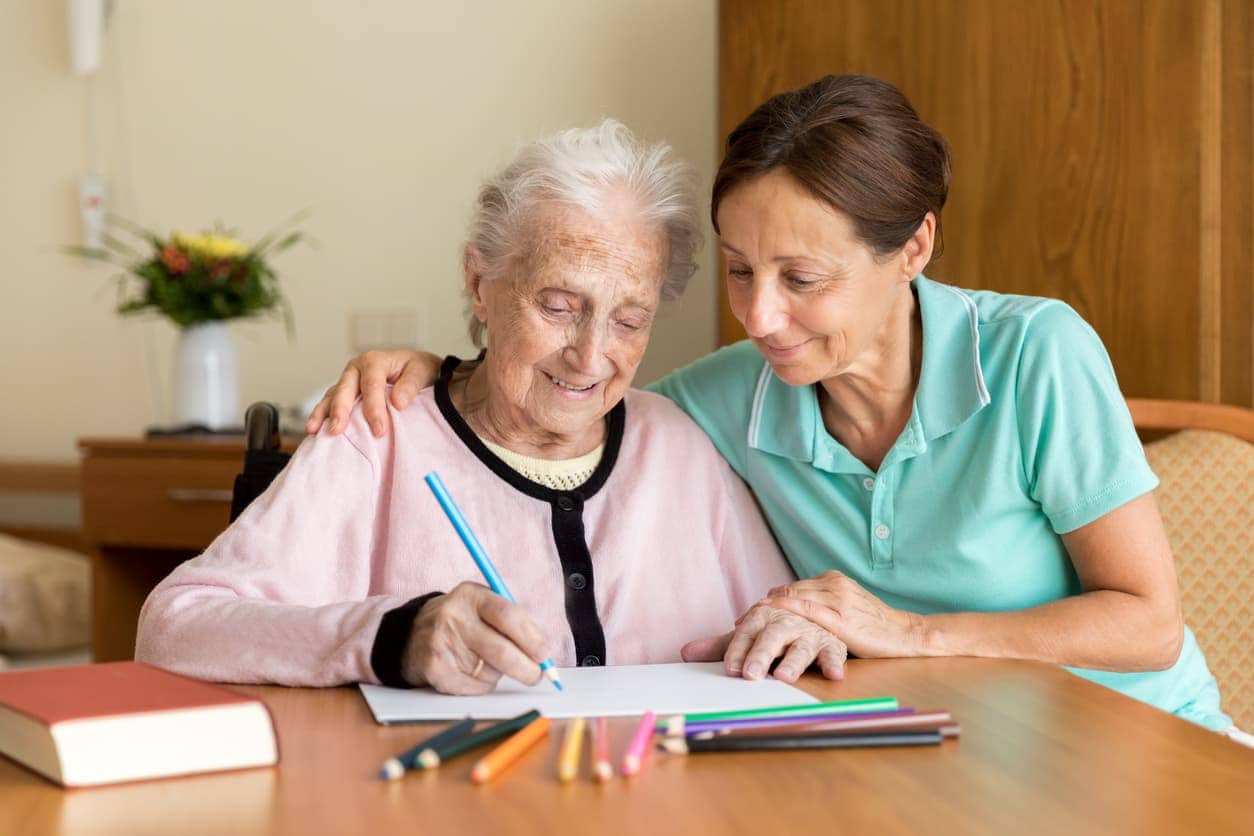
The Holidays, The Virus, and Dementia
For the 2020 holidays, the CDC says it’s best to stay home and celebrate on your own or with the people you already live with. Hospital beds are more full now than they were in March and there aren’t enough nurses and technicians to operate the ventilators we have, so to avoid a third wave, we should all comply, especially if we have or live with someone who is at risk for developing complications from the virus. We have to be careful to avoid the third surge overwhelming our hospital system. So . . .
What do we do instead?
For Everybody
This year, ideally, we celebrate in person only with people we already live with day-to-day. If you want to prepare a traditional meal, go ahead! But consider maybe just a turkey breast, or switch to baked chicken or start a new tradition for your family! Consider hosting or attending a virtual dinner. Watch your favorite sports (college basketball starts Thanksgiving week!). Watch the Macy’s parade on Thanksgiving, and Disney Christmas parade (both of which have changed formats and made other changes to keep people safe during COVID). Watch your favorite Thanksgiving and Christmas movies from home. Instead of braving the unprotected crowds of Black Friday in person, shop Black Friday online to avoid the crowds and COVID exposure. See the sidebar for more ideas.
For households or other groups with family members with dementia . . .
It’s a curious year. Many of the aspects of celebrating the holidays that normally make people with dementia uncomfortable (large gatherings, conversations with strangers, being left alone in a crowd) are missing!
Some advice still applies this year, though:
Talk to family and friends (whether they’ll be there in person or only virtually) in advance about your loved one with dementia, reminding them:
Do please engage them in conversation, but be mindful of a few things:
o It’s better not to contradict anything they say or to argue even a small point. Just go along with them or change the subject to something else that interests them.
o While it’s good to encourage reminiscing, especially among relatives with a shared background, (again) don’t argue or try to correct them if they remember things differently from you. They actually do remember it the way they describe, and no amount of persuasion will change their minds.
o If they believe (which is quite common) that their spouse, parents, or other loved ones are still alive (or even present at the gathering) there’s no reason to contradict them.
o Let visitors know about topics known to upset them and ask visitors to avoid those topics.
o Let visitors know what types of behaviors might occur and when to ask for help.
o Encourage visitors to read up on dementia and understanding how to interact with people suffering from it. (See resources below.)
Though Thanksgiving will be very different this year with smaller groups and less travel its purpose remains the same – to take a day to express thanks for what we do have including friends and family whether we are physically with them or not. While those with dementia may struggle to remember a name or even a face, most of them will understand when they hear someone say how grateful they are to have them in their lives.
Resources
- http://www.alzheimersweekly.com/2014/11/4-meaningful-thanksgiving-tips.html
- http://www.alzheimersweekly.com/2015/11/10-precautions-for-celebrating.html
- https://www.usagainstalzheimers.org/blog/5-things-never-say-person-alzheimers
- https://www.cdc.gov/coronavirus/2019-ncov/daily-life-coping/holidays.html
- https://www.nia.nih.gov/health/holiday-hints-alzheimers-caregivers
- http://methwick.org/2016/12/tips-de-stressing-holidays-people-dementia-families/
See More Articles
- Visiting Your Aging Parent With Memory Loss at Avalon Memory Care
As a loving son or daughter, you naturally want the best of care for your senior parent. The compassionate assisted living caregivers at Avalon Memory Care want you to know that while your parent is living with us, he or she will receive nothing less than respectful, loving care within our comfortable, safe, and fully-staffed
- Celebrating New Year’s Day in Memory Care
Families often find that celebrations with their loved ones in memory care are easier when they embrace new traditions. For instance, it may not be practical to expect your loved one to stay up until midnight on New Year’s Eve. Instead, consider throwing a New Year’s Day celebration, complete with a countdown to the first
- Hope For the Future: Emerging Alzheimer’s Research
According to the latest statistics, as many as 5.5 million Americans are living with Alzheimer’s disease, and its prevalence is only expected to rise in the next few decades. At the same time, however, research into treatments for the condition is accelerating. With every passing year, we move a little further down the road toward
Testimonials
Downloadable Resources
We Are Avalon
Discover the heart of our community; download ‘We Are Avalon’ to get to know our dedicated team and our commitment to providing a warm, family-like environment.
Transitional Care Guide
If you’re considering a transition, we’re here to help; download our Transitional Care Guide for compassionate guidance through each step of the process.
Schedule a Tour
Visit one of our 30+ campuses and experience our unique approach to memory care.












